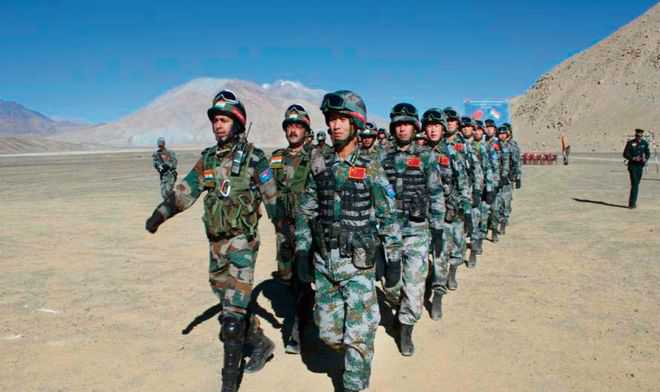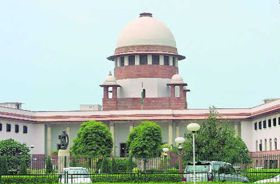
Important: Operational logistics in the world''s most inhospitable battleground.
Maj-Gen Amrit Pal Singh (retd)
ex-Chief of Logistics in Ladakh region
The delivery of pizzas to soldiers at Siachen by a fast food franchise and the recent passing away of George Fernandes, the charismatic union leader-turned-politician attracted many eyeballs for different reasons. The pizza delivery was showcased commercially as a logistics marvel and must have drawn wry grins from the men in the forward areas, for they have a grasp of the operational logistics that keeps them battle-worthy in these hostile and harsh conditions.
George Fernandes, who was Defence Minister from 1998 to 2004 and oversaw the Kargil conflict, however, is remembered by all in uniform and those in the bureaucracy for driving home the primacy of operational logistics in the world's highest and most inhospitable battleground — Ladakh. So, while the pizza delivery to the troops in Ladakh was being touted as a logistics victory, George Fernandes would be smiling too.
Ladakh in the state of Jammu and Kashmir is so different and diverse from the rest of India that it takes some comprehension of the region's remoteness and arid climate to appreciate the fact that it is more of a battle against the elements of nature than the enemy. That probably is why the Minister ordered the babus of the Ministry of Defence to take a trip to the Nubra Valley and Siachen glacier to see firsthand the task of survival and importance of logistics.
The posts manned by the Indian Army at these areas are compact and spread across the width and length of the glacier. Troops walk long patrols on snow and ice to monitor intrusions by the enemy and carry basic provisions and kerosene to warm the bunkers.
Snow scooters were requisitioned to assist in the carriage of logistics loads and for casualty evacuation to the nearest helipad. Story has it that some intransigent bureaucrats were stalling the case file of the procurement of snow scooters for use in Siachen. The Defence Minister, on getting to know of the stumbling block, ordered each one of them to move to the glacier for a 'trek' to the posts to clear their perceptions of the necessity of special equipment. The snow scooters were procured without a hitch. This small direct intervention paved the way for many such special procurements meant to alleviate the operational and logistic exigencies in Ladakh and many other areas. It's a different matter that nowadays while the Siachen trek continues, it is treated more of a summer adventure by the mandarins of South Block who now send junior staff and children to attend what is now conducted as a tame trek.
The Ladakh region is cut off from land access for six months each year and is land-locked due to the closure of the Rohtang and Zojila passes. Access is only possible from early April when the two passes are cleared of 40 feet of snow up to October.
The population that lives in winters in the cut-off 'road closed' period of six months is an estimated three and a half lakh. And then, there is livestock which are also mouths to feed. The daily requirement of supplies to sustain such a strength is nearly 300 tonnes at a conservative consumption rate and it includes every item: from matchbox to vegetables and staples like wheat and rice. Add to this the requirement of fodder, fuel for the vehicles that ply for the forces and commercial activities, kerosene for warming and this tonnage increases by an estimated another 300 tonnes. Approximately, around 400 tonnes per day gets factored for daily sustenance in the 'road open' period. This estimated total of 1,000 tonnes needs to be transported each day.
An annual winter stocking exercise is conducted to carry the daily requirement and stock it in locations for surviving the 'road closed' period. In all, the logistician's target for winter stocking is a staggering two lakh tonnes. All this tonnage is pushed in by road and some transported by air to locations where no vehicle can reach. This, of course, has not factored the move-in and move-out of troops and locals who add to the passenger manifest on convoys and on military flights. The combined might of the Air Force, Army and Border Roads personnel and equipment enables the completion of this mammoth yearly event.
The Srinagar-Leh highway and the Manali-Leh road are the two axes used in the summer road open period to transport thousands of tonnes of stocks to survive the harsh winter season. The load-carrying convoys and the train of bulk petroleum lorries that snake their way on the two main axes are what most tourists encounter on their drive via Zojila and Rohtang.
It is on the Srinagar-Leh axis ahead of Zojila pass, where the area that is a household name today — Kargil — is located. The proximity of the road link to the dominating heights on its west prompted Pakistan to occupy the heights at Dras, Kargil and Batalik in an attempt to choke Ladakh, which led to the Kargil conflict in 1999.
The announcement recently of the approval of the road transportation project to provide a bidirectional tunnel at Zojila is a strategic and logistic requirement which will connect Srinagar to Kargil and Leh. The tunnel at Rohtang from Solang near Manali is under construction and will provide all-weather connectivity to Lahaul and Spiti and on to Leh. The construction of these two tunnels will provide all-year connectivity to the security forces and allow for strategic positioning of war-like stores and supplies. The socio-economic facet of the tunnel connectivity provided to Ladakh is probably as relevant to the region that can be compared to another heartwarming event in 1950 that connected the people of Ladakh with India.
When Jawaharlal Nehru, Prime Minister, visited Leh in the aftermath of the devastation caused by the raiders from Pakistan in1948, the region was reeling under the psychological scars of the attacks and repeated crop failure. Over 80 per cent of the Ladakhis were Buddhist and their spiritual leader Kushok Bakula Rinpoche made a request for them, many of whom could not afford to go on pilgrimage to Gaya or Sarnath. The Rinpoche requested for the relics of Lord Buddha and his two disciples housed at Sarnath to be sent to Leh. He felt that this would help heal the population from the recent tribulations and reinforce the sense of belonging of the Ladakhi people to India.
Nehru went back to Delhi and instructions were given to draw up the logistics of a plan to carry the relics to Ladakh. In May 1950, the holy relics were flown from Calcutta to Srinagar and then by a special military aircraft to Leh. The relics were, for the next 79 days, taken to all major monasteries and scores of villages to bring people together in holy communion and help them forget their troubles.
The pizza story, the intervention by George Fernandes and the move of the holy relics are all indicative of the logistics difficulties of accomplishing what one considers a 'given' elsewhere. It characterises the tenuous and fragile conditions in which the armed forces operate. Till the tunnels are a reality, winter stocking for Ladakh will probably remain as one of the world's largest logistic exercises — George Fernandes understood that.



























